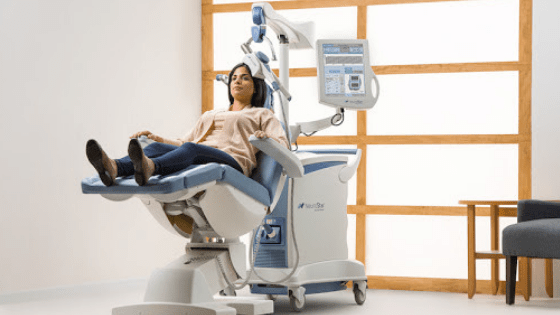Depression is hands down one of the most damaging mental diseases on the planet – and even worse, it is also one of the most common.
With this in mind, the onset of depression after giving birth (post-natal depression) is increasingly common.
Which is why I have gone ahead and outlined five fantastic organic strategies you can use to boost your mental health after giving birth, and help you fight post-natal depression for good.

What is post-natal depression?
Post-natal depression (also known as post-partum depression) refers to a seriously damaging mental illness that can affect 15% of women after giving birth. While it is uncommon for some women to feel sensations of sadness after giving birth, this is different.
In fact, this is very different.
Postpartum depression results in extreme feelings of sadness, isolation, and unease after giving birth. To make matters worse, this often comes with the onset of chronic fatigue, and an associated loss of self-worth.
Worst of all, it can last a whole lot longer than just a few weeks.
As I am sure you can imagine, this is obviously terrible for the parents. However, it also lowers the quality of care that the newborn baby receives on a daily basis – subsequently, it places a huge amount of health risk to mum and baby.
It is terrible.
But fortunately, it isn’t a death sentence.
There are a number of unique natural strategies you can employ to boost your mood, enhance your mental health, and fight post-natal depression.
I hope you enjoy the best 5 organic ways to deal with depression after giving birth.
-
Supplement with Omega-3 Fatty Acids (AKA fish oil)
Omega 3 fatty acids are one of the most important nutrients in your body. Found naturally occurring in fish, seeds, and certain nuts, these little compounds are used to make walls of the cells in your brain.

I said, they are pretty damn important.
With this in mind, people who are deficient in these fats tend to exhibit a higher risk of cognitive decline, are more likely to have negative mood swings, and will be at a much greater risk of developing anxiety and depression.
Unfortunately, the western diet is notoriously low in foods that contain omega 3 fatty acids – which obviously makes them hard to obtain through diet alone.
But omega 3 supplements (such as fish oil) remedy this by providing a simple and effective way of increasing your Omega 3 fatty acid intake. More importantly, this type of supplementation has been shown time and time again to help treat post-natal depression
-
Do Some Yoga
When it comes to relaxing the body and mind, it’s hard to look past yoga.
Yoga is an amazing type of exercise that has been used for millennia in eastern countries across the globe. Most commonly used in a variety of traditional cultural practices, it offers a very powerful way of strengthening you from head to toe.

This specific activity really is unique as it combines aspects of both exercise and mediation into one. As a result, it offers a great way to not only strengthen your muscles, but also relax and clear your mind.
The combination of these two factors has been shown time and time again to reduce stress, improve mood, and fight off feelings of depression and anxiety after giving birth.
-
Try Some Transcranial Magnetic Stimulation
Get ready for some real science fiction stuff here.
Transcranial magnetic stimulation (also known as TMS for short) is a new mental health boosting treatment that uses magnetic fields to improve your mood.

You see, these magnetic feels literally stimulate the nerve cells found within your brain – which can have a huge impact on your emotional well-being.
When you undertake a session of TMS, an electromagnetic pad is placed on your head (most commonly, just above the forehead). When turned on, this pad sends a small magnetic pulse directly into your skull, where it stimulates your brain.
Because the pad is placed in this exact location, these waves precisely stimulate the area of your brain that controls your mood and your emotions.
And this is where it starts to cause some benefit.
You see, when used in this manner, TMS activates this specific area of your brain, which causes a subsequent increase in your mood. Through this interaction, it offers an amazing way of fighting depression after giving birth.
According to Dr. Lindsay Israel, Chief Medical Officer and Medical Director for Success TMS, the largest TMS provider in Florida, “mothers with these symptoms can be treated without any concern of systemic side effects or causing any harm to the baby. TMS targets pulses directly at a specific location in the brain, and women can be fully awake during this 19 minute treatment.“
TMS brings new hope for mothers who develop this type of depression and allows these women to treat their symptoms without stigma, regain their functioning and enjoy motherhood.
-
Exercise
Every single person on the planet knows that exercise is good for their body – but not too many know that it is also good for their mind.

You see, when you exercise, your body releases these amazing little chemicals known as neurotrophic growth factors directly into your brain. The reason I refer to these chemicals as amazing is because they literally promote the growth of your brain cells – which in turn, improves their ability to function.
Like I said, amazing.
Now, this growth not only improves your cognitive function, but also reduces stress, improves mood, and creates a global sense of well-being.
As a result, exercise has been shown to be one of the most potent treatments for post-natal depression.
-
Bathe in some Light Therapy
Have you ever noticed how people tend to feel a little down during the winter months?
Interestingly, this isn’t just because it is cold, wet, and miserable, but rather because of a lack of sunlight.

https://www.rejuvcryo.com/red-light-therapy
You see, the light from the sun stimulates both your hormonal and nervous systems, leading to the production of several ‘feel-good’ hormones. As their name so aptly suggests, these hormones improve mood.
Now for the kicker – during those first few weeks after giving birth, getting enough sunlight on the daily can be impossible,
Which is exactly where light therapy comes into the discussion.
Light therapy has you standing near a powerful little machine known as a ‘light therapy box’ for 30-60 minutes per day. Amazingly, this box emits a light that is the same as sunlight – in which it exhibits the same effects on your body.
As a result, light therapy is a great way to help you treat post-natal depression completely organically.
Take Home Message
Experiencing depression after giving birth is an extremely common phenomenon – but it really doesn’t have to be.
Using the 5 organic strategies listed in this article, you can improve your mood after giving birth and reduce your risk of developing post-natal depression in a big way!
 Kaboutjie SA Mommy Blogs by Lynne Huysamen
Kaboutjie SA Mommy Blogs by Lynne Huysamen





Thank you so much for sharing ♥️
I know of a few people who can benefit from this post! Definitely sharing it to my Facebook profile 💙